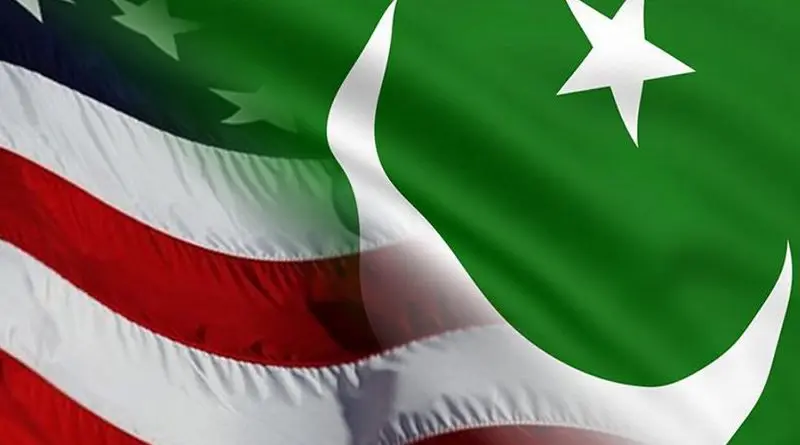Pakistan-USA Relations: A Way Forward – OpEd
Since its independence in 1947, Pakistan has been aligned with the USA in pursuit of common objectives driven by principles of democracy. However, the history is evident that the relationship, lacking long-term strategic convergences, has mainly remained marred by mistrust, back-stabbing, duplicity and covert wars. Pakistan considers the USA a reluctant partner, who could not fulfill its obligations as a partner during the Indo-Pak wars of 1965, 1971, and more recently the Kargil Fiasco of 1999. Additionally, it also felt abandoned bythe USA after effectively benefiting from Pakistan’s critical cooperation during the Cold War, sanctioning it for nuclear development.
Notwithstanding the historically topsy-turvy bilateral relationship, the horrible incidents of 9/11 once again compelled the two states to come closer and fight the Global War on Terror, where Pakistan received the title of a “Major Non-NATO ally” and initiated one of the largest counter-terrorism operations in Federally Administered Tribal Areas (FATA) and adjacent territories, deploying about two hundred thousand combat troops against the crept in terrorists from Afghanistan.
Despite suffering sixty-three thousand casualties in this war and financial losses amounting to a hundred plus billion US$, the USA could not find sincerity in Pakistan’s actions and blamed the state for being selective in targeting terrorist groups – sparing their favorites and providing safe havens to leadership of Afghan Taliban and Haqqanis.
A trend analysis reveals that the counter terrorism cooperation during 2001 to 2008 was extremely effective and rewarding as both the USA and Coalition plus Pakistan primarily focused on Al-Qaeda and were able to cripple their operational capability, however as the USA started to shift its focus from Afghanistan towards larger and newer threats, such as economic rise of China and resurgence of Russia; it also felt the need of changing its regional partners. Since Pakistan and China enjoy very friendly and historic relationship, USA perceived that the strategic shift in South Asian region, AKA the “US Pivot to Asia-Pacific” or Rebalancing Asia-Pacific” more recently revised as “Indo-Pacific Strategy”, would be well served if India is emboldened to enhance its regional role and serve as a counter-weight to China.
A nuclear Pakistan, closely befriended by China and aggressively postured against India would find no subscribers in Washington; therefore US policymakers believed that a weakened Pakistan, dependent on US-led global economic regimes and marred by internal law and order issues would ensure success of their envisaged plan for South Asia. The USA also realized that the quagmire of continued instability in Afghanistan, despite deployment of 39 nations Coalition in Afghanistan for more than a decade and half, is bound to garner international suspicion, unless some country or external force is blamed for it and Pakistan would provide a natural scapegoat to that affect.
In retrospect, it can be said that ongoing pressure tactics against Pakistan are but a product of an intricately conceived plan aimed at serving the USA’s strategic interests in region, which are not limited to Afghanistan but are more focused towards the “new Cold War”.
In this milieu, predicting the future of Pakistan-USA relations should not be too difficult for analysts and students of international relations. The USA wants Pakistan to become a pliant state, preferably de-nuclearized and saying “YES” to whatever demands the US may place. On the contrary, Pakistan wants the USA and international community to acknowledge its successes and sacrifices in global war on terror and rejects all allegations of double play and back-stabbing.
In the absence of long-term strategic interests, both the states will have to look for tactic convergences to salvage the relationship and, at the moment; some semblance of political settlement in Afghanistan is their best shot. If both sides can sit and work out a strategy, aimed at engaging Afghan Taliban in the dialogue process and succeed in finding a solution for Afghanistan, this act alone would bring a lot of positive change in the regional geo-political calculus, not only for the USA and Pakistan but for all regional stakeholders. However, all parties will have to identify and guard against the spoilers, who would not wish stability and peace coming to the war-torn Afghanistan.
The recent visits of State department Envoy Ambassador Alice Wells to Pakistan are indicative of the given approach that probably both sides are already working to chalk out a pragmatic course of action for political settlement in Afghanistan.
Functional Pakistan-USA bilateral relations are critical for both the states and there is a need on both sides to relinquish extreme positions, create space for multi-faced engagements and alter their respective foreign policies accordingly, suiting and protecting each other’s valid interests. While failure in doing so could prove catastrophic for Pakistan, the USA will not be benefited either; as an injured Pakistan would do everything in its capacity to render the US stay in the region uncomfortable; and many believe that Pakistan does possess certain tools and leverages, employing which it can create significant nuisance for the USA.
The bottom line recommendation is that while USA must shun its policy of coercion and undue allegations against Pakistan, the latter will also have to consider genuine US concerns in the region and work out a middle path of cooperation and rapprochement.
*Syed M. Mehmood Hashim is a university graduate pursuing higher studies. He is a Pakistan-based free lance article writer and a part time analyst for an Islamabad-based think tank. He can be contacted on email [email protected]

